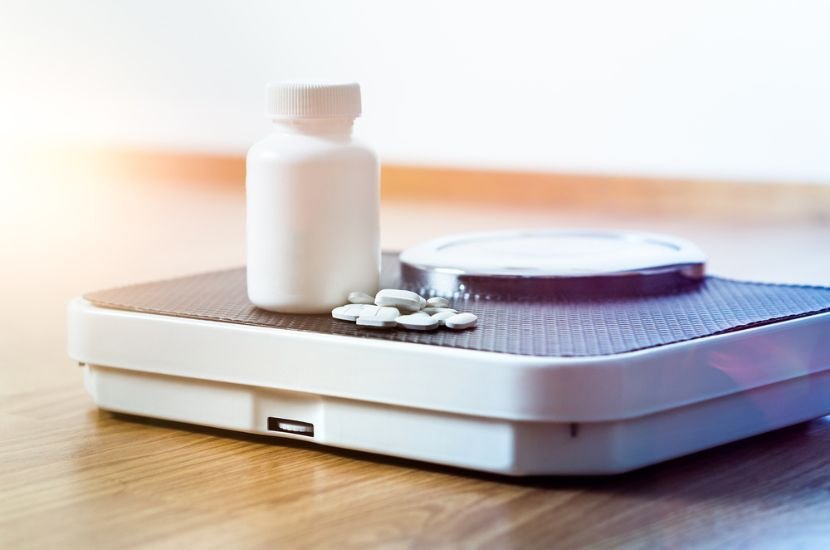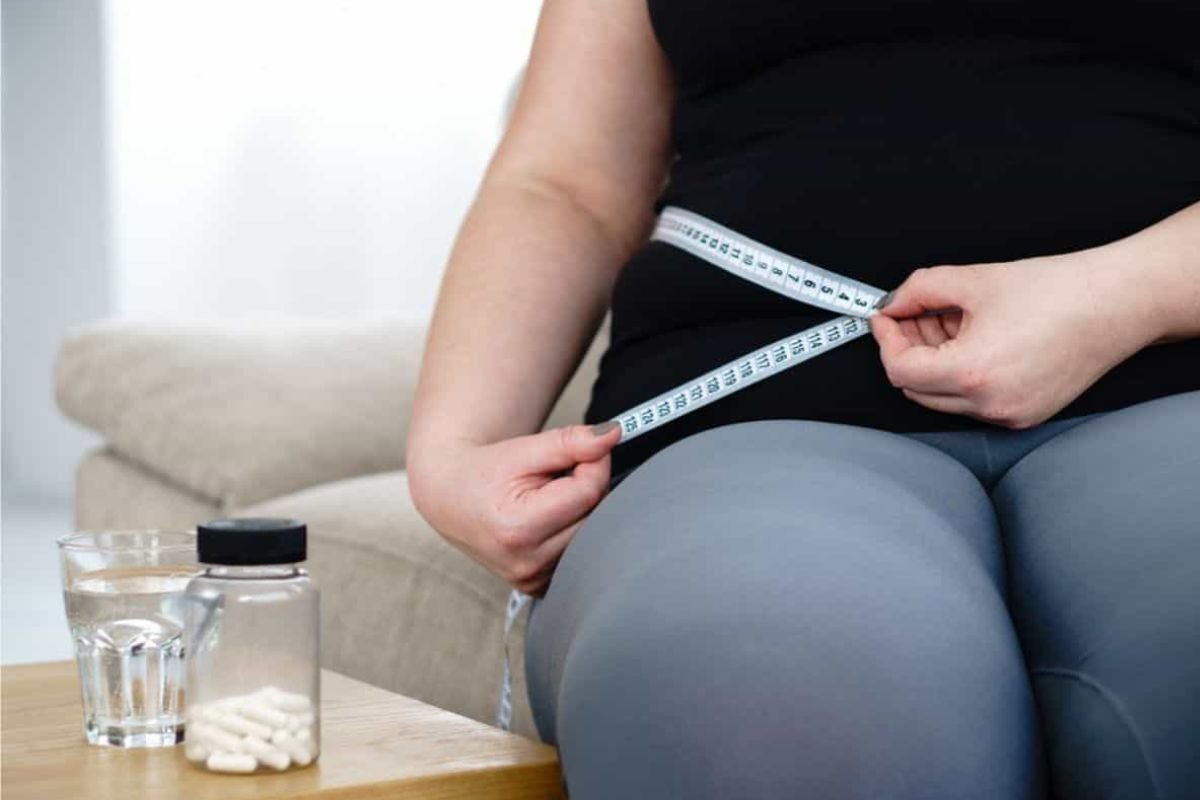Are you taking letrozole to treat breast cancer or infertility? And worry about its potential side effects, like weight gain or belly fat. But don’t worry, not every person taking letrozole gains weight. Every person’s body reacts differently to these endocrine therapies.
Letrozole is an aromatase inhibitor that reduces estrogen levels in post-menopausal women who have hormone receptor-positive cancer cells.
One of the most commonly asked questions about this drug is, “Does letrozole cause weight gain?” But is this claim true?
In this blog post, we will cover all the facts and look behind the curtain of myths about letrozole and weight gain. We’ll delve into the research on the link between letrozole and weight gain and provide you with all the information you need to make an informed decision about starting a course on letrozole.
What is Letrozole?
Letrozole is a medication that is used to treat certain types of breast cancer( like hormone-receptor-positive breast cancer) in women who have gone through menopause.
It is part of a group of drugs called aromatase inhibitors, which work by stopping the body from making estrogen. By doing this, it can help lower the chances of breast cancer from returning or spreading to other parts of the body.
Uses of letrozole
Common uses of letrozole are:
- Treatment of breast cancer in postmenopausal women
- Lowering the chance of cancer from returning
- Prevention of spreading of cancer to other parts of the body
- Management of hormonally-responsive breast cancer
- Used alongside other medications in cancer therapy
Side Effects of Letrozole
Letrozole has been known to cause several side effects, including some that can affect your weight. These include increased appetite, fluid retention, and fatigue. Letrozole can also cause muscle pain and bone loss. Common side effects of letrozole are:
- Weight gain
- Increase in appetite
- Fluid retention (swelling)
- Fatigue
- Muscle pain, bone loss
- Hot flashes, hair loss, joint pain
- sweating, nausea, diarrhea
Talk to your doctor immediately if you have serious side effects like:
- bone fractures
- blurred vision
- nausea or vomiting that doesn’t stop
- swelling of arms and legs
Connection between letrozole and weight gain

It is important to understand that the side effects of letrozole can vary from person to person. Some people may not experience any weight gain at all, while others might find it more difficult to maintain their current body weight or even gain weight.
- Weight gain may occur in some people taking letrozole
- Fluid retention can be a factor
- Increase in appetite can also be a factor
- Weight gain may be more likely in people who are already overweight or obese when starting the treatment
- Weight gain may be more likely in people who take medications that can affect weight
Does letrozole cause weight gain?
The link between letrozole and weight gain is complex and not fully understood. The answer is not straight “yes” or ‘no.” Some studies have shown that letrozole can make you gain weight, but it’s not the same for everyone.
Experts believe that the reason behind weight gain is due to hormonal changes that letrozole causes, such as increased appetite, fluid retention, and fatigue, which might reduce physical activity levels.
Similarly, weight gain can also occur if the patient takes other medicines at the same time as letrozole. These might include steroids, commonly used in cancer treatments, that can cause weight gain. Plus, the emotional stress and lifestyle changes that come with a cancer diagnosis and treatment can also contribute to weight gain.
I hope you understand that letrozole is not only a cause of weight gain. So, it’s important to talk to your healthcare provider about this concern. They can give you a better understanding of what to expect based on your specific situation.
Also Read: Does United Healthcare cover Wegovy for Weight loss
Does letrozole cause belly fat?

Studies show that letrozole can sometimes cause an increase in abdominal fat. This is because of the changes in hormones that can affect your body’s ability to store and burn fat. Some other factors like diet, exercise, age, and genetics can all have an impact on your body to gain weight.
If you want to reduce your risk of gaining abdominal fat while on letrozole, it is important to maintain a healthy lifestyle. This includes eating nutritious foods, avoiding fatty foods and sugary snacks, exercising regularly, and managing stress.
How to avoid weight gain on letrozole?
If you are taking letrozole and worried about weight gain, there are some things you can do to help minimize the risk. Here are a few tips:
- Eat healthy foods that are unprocessed and nutrient-dense
- Move your body daily to burn some calories(light weights, jogging, etc)
- Add fresh vegetables, fruits, and whole grains to your diet
- Get proper sleep of 7 to 8 hours so that you don’t make any unhealthy food choices due to fatigue.
- Limit your intake of alcohol or smoking.
Foods to avoid while taking letrozole
If you are taking letrozole and want to avoid weight gain, there are some foods that you should try to avoid. These include:
- Avoid sugary snacks and desserts such as cakes, cookies, and pastries.
- Limit the intake of junk food (like chips, fries, processed meats, etc.)in your diet.
- Avoid drinks that are high in calories drinks, like sodas and energy drinks.
- Don’t eat fast or fried foods like French fries and fried chicken.
- Processed foods that are high in sodium or fat.
- Avoid alcohol; it can increase your appetite and lead to weight gain.
If you really want to maintain your body weight, avoid all these foods, especially if you are undergoing chemotherapy or hormonal therapies.
Also Read: 12 Foods You Must Avoid When Taking Hydroxyurea
Does letrozole cause bloating?
Yes, letrozole may cause bloating(feeling of fullness or tightness in the stomach). Bloating can sometimes cause weight gain if you are not careful.
Here, we discuss some steps that can reduce the risk of bloating
- Drink plenty of water. It can help your digestive system to move and reduce the chances of bloating.
- Limit carbonated drinks, which can cause gas.
- Avoid foods that are difficult to digest, like beans, cabbage, broccoli, etc.
- Eat smaller meals frequently. It can help you prevent bloating from overeating.
Conclusion
Letrozole is used to treat breast cancer in postmenopausal women, but it can have side effects related to weight gain. Some people may experience its side effects, while others are not.
You can take some steps to minimize this risk, such as eating a healthy diet, exercising regularly, and avoiding foods that are difficult to digest.
Consult your doctor if you have any concerns about weight gain or other side effects while taking letrozole. They can provide you with the best advice about your specific situation.
Hello Friends!
My name is Ahmad, reading books and gaining knowledge about Health, skin and their conditions is my passion and I am here to share my knowledge and experience with you. I hope it’s very helpful for you.
Thank you very much.
